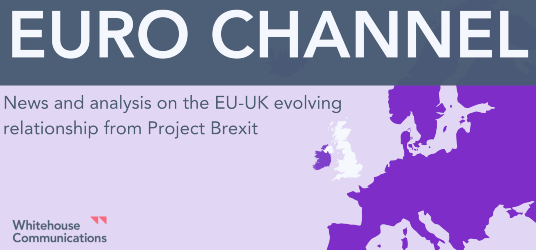What is Reputation Management?
A brand’s reputation is a concept that can be difficult to quantify, and yet has never been more important. In the 21st century where information is at our fingertips, a seemingly small leak or rumour can spread quickly, leading to a reputational crisis which is out of control as soon as you’ve heard of it.
Whilst ‘reputation management’ can sound a little like nonsensical marketing jargon, what we mean by this term is considering how your company is viewed by stakeholders. It is crucial to build trust with customers, end use consumers, suppliers, employees, potential future employees, investors and potential future investors. We use this ‘credit in the bank’ phrase because the better your public reputation, the more this can support your active business growth goals – from increasing your customer base, to attracting new investors, to hiring better talent quicker. Whatever you’re looking to achieve, having a brand reputation which is trusted and respected will make them so much easier.
One of the benefits of a solid brand reputation management plan does is buy you credit for when a crisis does unfold; and also provides you with a solid plan on how to handle such a crisis swiftly and efficiently with minimum damage to your name.
So, who needs reputation management? Everyone. For those looking to explore public relations, a reputation management plan is the foundation you need to start building up a solid and successful media campaign.

Public Relations In The Food Sector
If we were to write this blog two years ago, it would be far more difficult to believe that life altering disasters could be our reality. Unfortunately, we are now all incredibly aware of how quickly life can change, and how this can impact businesses.
Reputation management in the food sector is even more important. There are certain industries where a slip up only goes as far as a funny tweet. But others can be much more serious, Chitranshu Sharma’s blog on LinkedIn explains some common reputation management mistakes.
This doesn’t apply to the food industry. Let’s say there’s an error such as human hair finding its way into a food product – it’s not funny, and it has the potential to snowball. One tweet garners attention from hundreds if not thousands of followers, all demanding an explanation; which then gets picked up by the media and other customers worry about the quality of their product.
Taking this to the most extreme end, a crisis in the food sector can be fatal – such as the tragic death of Natasha Ednan-Laperouse after she consumed a Pret-a-Manger sandwich which did not have sesame seeds (an ingredient she was allergic to) listed on the package and led to ‘Natasha’s Law’ being introduced in the UK. Introduced this year, Natasha’s Law requires all food outlets to provide full ingredients lists and allergens on pre-packaged foods.
Although it can be a depressing task, part of our job is to analyse the risks to a business which would affect their reputation. As a snapshot, risks to public relations in the food sector include:
- Allergens
- Human contamination – e.g. hair, nail
- Non-human contamination – e.g. screw, machines haven’t been cleaned out thoroughly
- Ingredient errors – e.g. shells of a nut
- 3rd party ingredient contamination – the ingredients you buy are contaminated with something which you can’t see
- Packaging malfunction
- Factory line malfunction
- Damaged products in transit
- Wrong best before dates
Not to mention risks that apply to all businesses:
- Data breach
- Employee whistleblowing
- M&A fallouts
- Supplier price increases
- Sustainability practices & demands
- Employee indiscretions – harassment, social media posts surfacing
- Strike action
- Industrial accidents

This isn’t meant to scare you. Part of our work as reputation managers is to work with a business to identify the likelihood of a risk and the potential impact it would have on the business. We are not saying is that you need to have a coherent crisis comms plan for every single possible risk to your business. What we are saying is that the fact that these risks exist at all means that your business should have a reputation management plan and, depending on the likelihood of certain risks, a specific crisis communications plan.
The Benefits Of Reputation Management
What are the benefits of reputation management? A firm draws up a proactive reputation management plan to build up good credit for their business. A good plan gives you a firmer, more solid and overall positive public image which can withstand smaller risks that materialise into a reality.
But what does a reputation management plan look like? Of course, these will be unique for each business, but we’d typically be looking at:
- Internal communications
- Thought leadership
- Sustainability & Environment Analysis & Updates
- Maximising Company Updates
- Awards
- Political & social cause engagement
- PR Stunts & Campaigns
- Crisis Comms Planning
Our Reputation Management Service
It may seem like a daunting task, but doing this preparatory work in advance supports your long-term business goals and ensures your company is in the best place to deal with a crisis.
For more information on Whitehouse’s work in the food and nutrition sector look at our brochure, and to learn more about reputation management and crisis communications, get in touch with Whitehouse Director of Communications Mayar Raouf at mayar.raouf@whitehousecomms.com.

